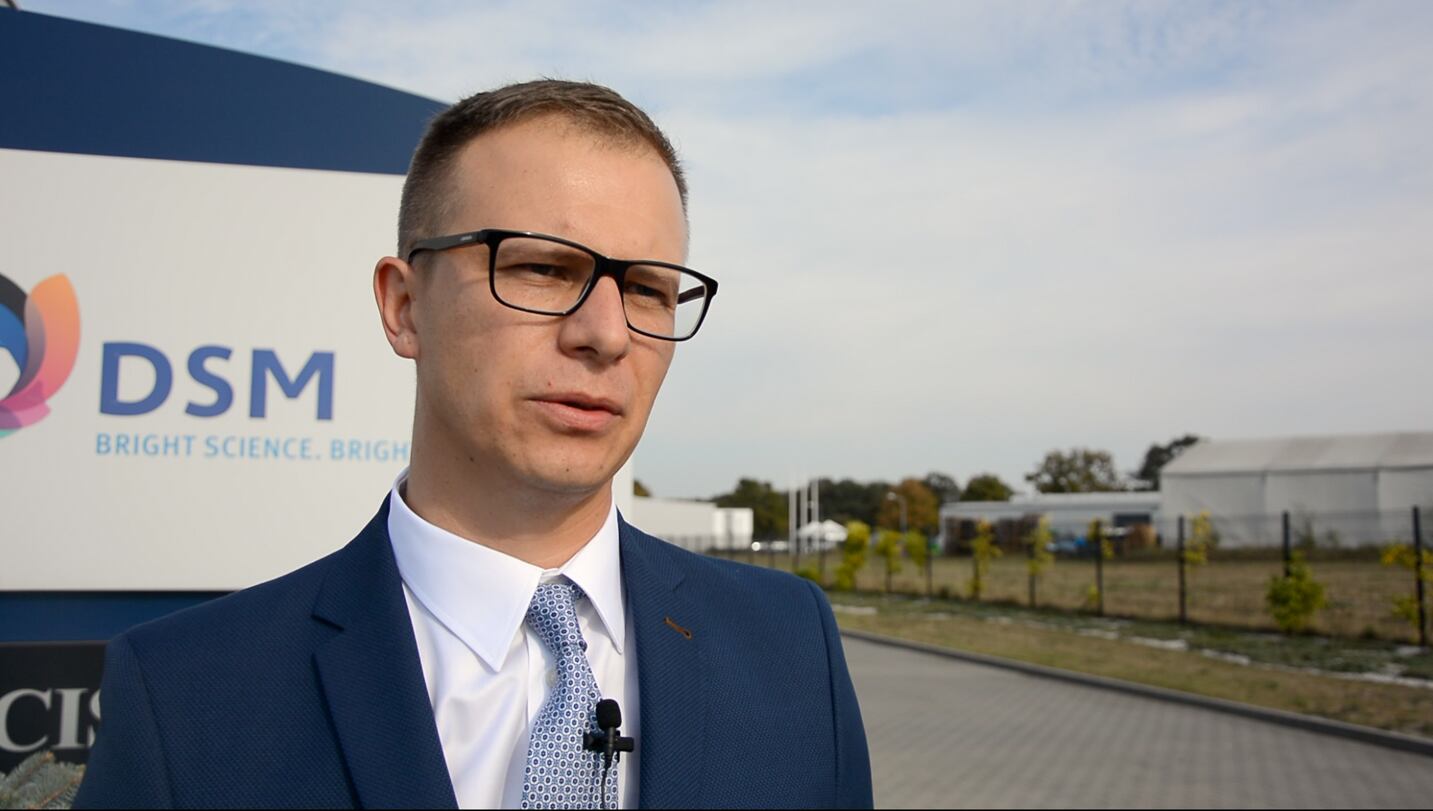The new plant will double DSM's production capacity of early-life nutrition premixes for its global market.
Ground-breaking ceremony in Buk
The ingredients major held its ground-breaking ceremony in Buk, Poland two weeks ago and NutraIngredients was there to find out more.
Ronnie Pankhurst, head of premix operations for EMEA at DSM, told us the decision to build a dedicated plant relates to the fact DSM's current assets in Europe are “running quite full”. The decision to build in Buk, Poland specifically - next to a current premix site - is also strategic, Pankhurst said.

“We decided that facility should be in Buk, in the Poznan area, because we already have this existing facility. We have a great team of educated people here, a laboratory expertise or quality expertise, and in this segment it's all about quality.
“We have many countries that we serve into and these customers and countries have different requirements and the requirements are changing day by day - they're just becoming tougher and we have to meet these requirements. So, that's our aim. We are serious about this segment and we want to deliver and grow in this segment.”
The current DSM plant in Buk has been operational for six years and will run alongside the new operations of the dedicated early-life nutrition plant.
Laboratory testing and analysis
Tomasz Sikora, site director at the DSM Buk plant, said the site's current laboratory capabilities are particularly important and will remain valuable in the running of the new premix plant.

“In the lab, we've got two groups of specialists. Our main analysis part are vitamins; we've also got equipment and we're able to measure the micro-elements and minerals, and we developed that department of lab as well,” Sikora said.
Customers increasingly want to use the DSM lab results and testing capabilities, he said, and so cooperation is an important aspect of the current plant's operations.
This cooperation, and co-innovation, will continue to play a valuable role in the new early-life nutrition operations, and Pankhurst said there is “some exciting stuff” happening innovation-wise in this category.
For example, he said knowledge around fatty acids is growing, as well as a wider understanding around vitamins and minerals in general.
'You have to innovate in formats'
Maria Pavlidou, head of marketing communications for DSM Human Nutrition & Health EMEA, said another area the company is investing in, and will continue to, is innovative delivery formats.
“You have to innovate in formats and you have to deliver in exciting flavors that the kids would like to take. And when we talk about innovation in delivery formats, of course it's very much about the kids but looking at maternal nutrition as well, so, for Mums. And good nutrition is important already from the day of conception,” Pavlidou said.
DSM invests in plenty of consumer research, she said, to understand these needs better. “Recently back in June, we did an event in Amsterdam where we invited Mum bloggers to talk about the challenges they face and the topics they write about and it was really amazing, all of them really mentioned about the picky eaters they have at home. You have kids who just want to eat pasta and bread and so on, so it's difficult to really get them to have the right nutrients when they're excluding certain items from their diet like vegetables.”
Irene Wosgien, vice president of operations for DSM Human Nutrition & Health, said the overriding aspect in all this remains quality.
Quality is 'of huge importance'

“I think the awareness of our customers are increasing. It's a market that is growing, I will not talk figures, but also what you see is that the market and customers are having increased quality requirements. With this increase in capacity but also bringing in the new state of the art tech and innovative equipment, we meet these requirements in helping our customers reaching that demand,” Wosgien said.
The new plant, for example, will have advanced blenders to enable dry cleaning, she said – something especially important in the early-life nutrition market where there are “high quality standards”.
Sikora agreed and said hygiene requirements in early-life nutrition are increasing. “We will focus on the right mixing because that's important – the homogeneity of the premix – and also hygienic design of the installation.”
Wosgien said: “Quality is indeed of huge importance, because when you have a kid you want to be sure – being also a mother – you want to be sure that if you give your kid food that it's of an absolute good quality and you're not getting ill. And that is of huge importance for our children and with our capabilities we can deliver that.”
